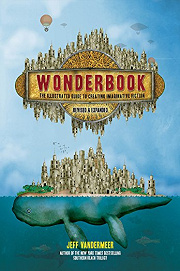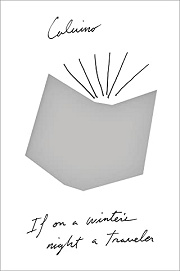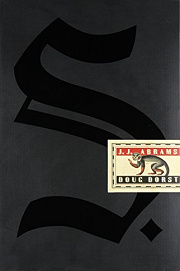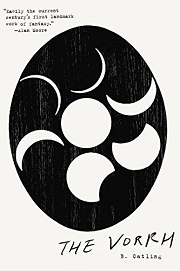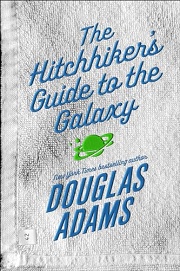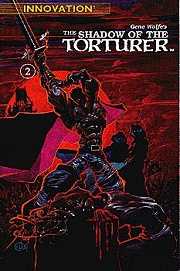Share your thoughts in a quick Shelf Talk!
Wonderbook by Jeff VanderMeer
Bursting with vivid art, practical exercises, and hard-won wisdom, this creativity guide invites you to build stranger worlds, braver characters, and stories that breathe. Whether you’re drafting your first fantasy or leveling up your craft, Wonderbook turns inspiration into a hands-on adventure.
Have you read this book? Share what you liked (or didn’t), and we’ll use your answers to recommend your next favorite read!
Love Wonderbook but not sure what to read next?
These picks are popular with readers who enjoyed this book. Complete a quick Shelf Talk to get recommendations made just for you! Warning: possible spoilers for Wonderbook below.
In Wonderbook, did you enjoy ...
... the playful, self-referential approach to storytelling?
If on a winter's night a traveler by Italo Calvino
If you loved how Wonderbook turns the act of writing into part of the story—those diagram-laden pages that talk back to you, the allusive captions, and the way the layout makes craft feel like an adventure—Calvino’s novel puts that spirit into a narrative. Each chapter restarts the story from a new angle, addressing you directly as “the Reader,” much like Wonderbook’s conversational sidebars invite you into a creative game. It’s a mischievous, mind-bending celebration of how stories are made.
... the margin notes, artifacts, and layered reading experience?
S. by Doug Dorst and J.J. Abrams
Those dense, marginalia-filled spreads in Wonderbook—with diagrams, annotations, and visual cues that make you read the page several ways—find a narrative counterpart in S. You’ll handle a faux library book stuffed with postcards, napkins, and maps, while two readers’ handwritten notes snake through the margins, building a second story atop the first. It’s the same delight in nonlinear navigation and discovery that Wonderbook’s collage-like pages evoke.
... lush, eccentric worldbuilding that treats setting like an ecosystem?
The Vorrh by Brian Catling
If the worldbuilding sections of Wonderbook—with their ecosystem maps and creature-crammed illustrations—sparked your imagination, The Vorrh dives you into a living, uncanny forest whose rules feel organic and ancient. Catling layers myth, colonial history, and surreal biology into a setting that breathes, much like Wonderbook urges you to think of worlds as interlocking systems rather than backdrops.
... the cheeky, illustrated sense of humor about speculative tropes?
The Hitchhiker's Guide to the Galaxy by Douglas Adams
The playful asides and cartoon-inflected jokes in Wonderbook—those wry captions that puncture solemn writing advice—mirror Adams’s deadpan footnotes and mock-reference-book gags. If you grinned at Wonderbook’s irreverent tone while still soaking up big ideas, you’ll love how Hitchhiker’s mixes cosmic silliness (Vogon poetry! a depressed robot!) with sly commentary that keeps your brain buzzing.
... puzzle-box stories that reward rereading and close attention?
The Shadow of the Torturer by Gene Wolfe
If Wonderbook’s emphasis on subtext, layered symbolism, and the careful placement of clues had you flipping back and forth between diagrams and examples, Wolfe’s masterpiece puts those lessons into practice. Following Severian through a far-future world, you’ll catch hidden meanings and elegant misdirections that reward the same forensic reading Wonderbook encourages when it talks about pattern, motif, and revision.
Unlock your personalized book recommendations! Just take a quick Shelf Talk for Wonderbook by Jeff VanderMeer. It’s only a few questions and takes less than a minute.
